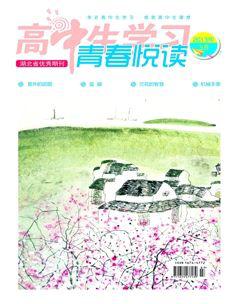Rewritten in Reverse
If the Hollywood movie The Curious Case of Benjamin Button suggests that a life lived backwards can be far more enriching, then the latest online writing phenomenon shows that a story read backwards is no less interesting.
Some classic works of literature, Journey to the West and A Dream of Red Mansions included, have been rewritten in reverse online. The original ending is turned into the starting point of a new story and the original beginning becomes the new storys ending.
Journey to the West was the first to be revamped. In the well-known story, a monkey born out of a stone protects a monk on his journey to the West as atonement for his past sins. But the new version by an Internet user sees the monkey turn into a stone after he helps the monk travel all the way to the East.
Journey to the West in Reverse alone was re-blogged over 20,000 times. Many people cant wait to try their hand at this new method of rewriting stories.
“Im quite interested in rewriting a Shakespeare story this way,” said Zhao Zhongyan, 21, an English major at Southwest University.
But why is this so-called “reverse style” such a hit?
“It reminds me of the 2008 American movie The Curious Case of Benjamin Button directed by David Fincher. The movies leading character ages backwards with bizarre consequences,” said He Tiantian, an English teacher at a Suzhou college. “When a story is rewritten in reverse, it also has unexpected consequences. It gets a touch of irony and the black humor of postmodern literature.”
And it has an attitude to it too, said He. “It looks like a case of young people challenging mainstream culture.”
Zhang Yiwu, a professor of Chinese literature at Peking University, agrees on the point of postmodern literature. “Parodying classic works of literature is a key attribute of postmodern culture,” he said. “It is also part of Internet-based culture.”
But Zhang believes the practice of rewriting classic stories in reverse is not simply an attempt to challenge mainstream culture.
“Its more about the young generations ambivalence toward mainstream culture,” said Professor Zhang. “Following all those years of school education, their systems of thought have been established based on mainstream culture. But the rebelliousness of young people drives them to show that they have a different way of thinking.”
“Reversing classic stories narrative is a humorous approach for them to resolve this ambivalence,” said Professor Zhang.

